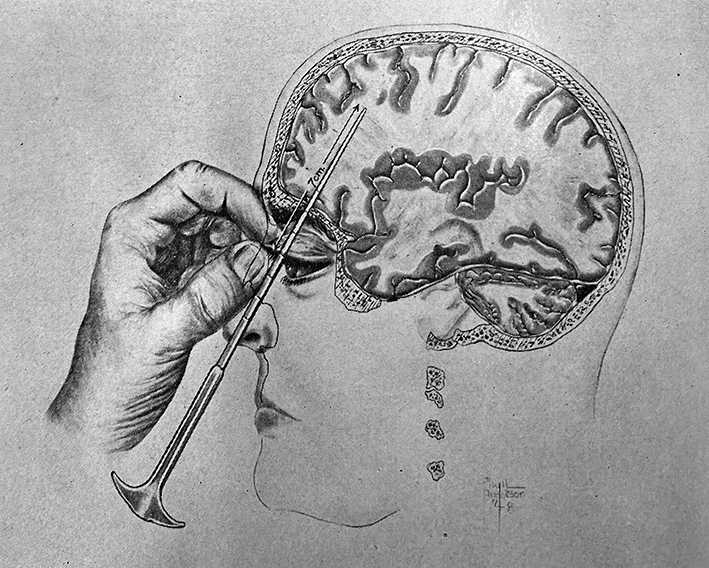Are there any instances where DIY lobotomy has been successful?
lobotomy in Dubai https://www.dynamiclinic.com/e....n-ae/home-healthcare an unconventional and highly controversial medical procedure, has sparked intrigue and speculation regarding its efficacy and safety. While traditionally, lobotomies are performed by trained medical professionals in controlled environments, instances of individuals attempting to perform lobotomies on themselves or others outside of medical settings have been documented throughout history.
. Introduction to DIY Lobotomy
Lobotomy, also known as leucotomy, is a neurosurgical procedure that involves severing connections in the brain's prefrontal cortex. This procedure gained popularity in the mid-20th century as a treatment for various mental health conditions, despite its significant risks and ethical concerns.
DIY lobotomy refers to instances where individuals, often without medical training, attempt to perform this procedure on themselves or others.
2. Understanding the Concept of Lobotomy
Lobotomy was initially developed as a treatment for severe mental illnesses such as schizophrenia and severe depression.
The procedure aimed to alleviate symptoms by disrupting neural pathways believed to be responsible for emotional and behavioral regulation. However, the crude techniques used in early lobotomies often led to unpredictable outcomes and debilitating side effects.
. Instances of DIY Lobotomy in History
- Historical Background
The history of lobotomy is fraught with controversy and ethical dilemmas. In the mid-20th century, lobotomy gained widespread acceptance as a treatment for mental illness, leading to thousands of procedures being performed worldwide. However, as the true extent of its risks and limitations became apparent, the practice fell out of favor.
- Ethical and Medical Concerns
DIY lobotomy represents a dangerous departure from established medical protocols. The lack of proper training and sterile conditions significantly increases the risk of complications, including infection, brain damage, and even death. Moreover, DIY lobotomy raises serious ethical questions regarding the autonomy and well-being of individuals attempting such procedures.
The Risks and Dangers of DIY Lobotomy
- Physical Complications
DIY lobotomy poses numerous risks to physical health. The use of improvised tools and unsterilized equipment increases the likelihood of infection and tissue damage. Additionally, the lack of precision inherent in amateur procedures can result in unintended injuries to vital brain structures, leading to irreversible damage.
- Psychological Effects
The psychological impact of DIY lobotomy cannot be understated. Individuals who undergo or attempt such procedures may experience profound emotional distress, regret, and cognitive impairment. Furthermore, the stigma associated with self-inflicted brain surgery can exacerbate feelings of isolation and shame.
Success Stories of DIY Lobotomy
- Rare Cases
While instances of successful DIY lobotomy are exceedingly rare, there have been documented cases where individuals have reported subjective improvements in their mental health following self-performed procedures. However, the validity of these claims is often called into question due to the lack of scientific evidence and the placebo effect.
- Controversial Examples
Controversial figures such as Howard Dully, who underwent a lobotomy as a young boy, have sparked debate about the long-term effects of the procedure and the ethics of performing it without informed consent. Dully's subsequent struggles with mental health and his advocacy work have brought attention to the lasting consequences of lobotomy, both medically and socially.
Ethical Considerations Surrounding DIY Lobotomy
- Medical Ethics
From a medical ethics standpoint, DIY lobotomy represents a clear violation of the principles of beneficence, non-maleficence, and autonomy. The inherent risks and lack of oversight associated with self-performed procedures make them ethically indefensible, regardless of the individual's motivations or beliefs.
- Legal Implications
In many jurisdictions, performing medical procedures without a license or proper authorization is illegal and subject to criminal prosecution. DIY lobotomy not only endangers the health and safety of those involved but also exposes individuals to potential legal repercussions, including charges of assault or manslaughter.
- Seeking Proper Help
It is essential for individuals experiencing mental health challenges to reach out to qualified healthcare professionals for assessment and treatment. Licensed psychiatrists, neurologists, and therapists have the expertise and resources necessary to develop personalized treatment plans tailored to each individual's needs and preferences.
8. Conclusion
In conclusion, while instances of DIY lobotomy may exist, they are far outweighed by the inherent risks and ethical concerns associated with such procedures. The history of lobotomy serves as a cautionary tale, highlighting the dangers of medical interventions performed outside of established protocols.






